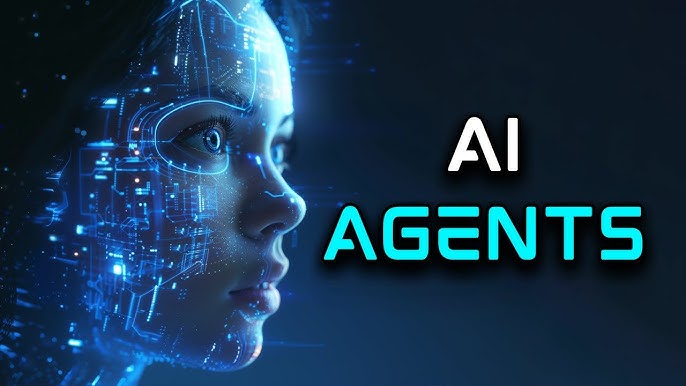Introduction
Over the past decade, the government sector has undergone a profound and rapid digital transformation. This transformation has been driven by the increasing demand for streamlined services, greater transparency, and improved efficiency. This shift, often referred to as "digital governance," represents a fundamental reimagining of how governments operate, interact with citizens, and deliver public services.
What is Blockchain Technology?
At its core, blockchain is a distributed ledger technology that allows multiple parties to record and verify transactions without the need for intermediaries, such as banks or government agencies. It achieves this through a decentralized network of computers (nodes) that work together to validate and record transactions in a secure and transparent manner.
How Does Blockchain Work?
Blockchain primarily functions based on the following properties
1. Decentralization: Unlike traditional centralized systems, where a single entity has control, blockchain operates on a decentralized network of nodes. Each node has a copy of the entire blockchain, making it extremely difficult for any single entity to manipulate the system.
1. Blocks: Transactions are grouped together into blocks. Each block contains a set of transactions and a unique identifier called a cryptographic hash. This hash is generated based on the information within the block and the hash of the previous block in the chain.
2. Consensus Mechanisms: To add a new block to the blockchain, nodes must reach consensus. Various consensus mechanisms, such as Proof of Work (PoW) and Proof of Stake (PoS), ensure that only valid transactions are added to the ledger.
3. Immutability: Once a block is added to the blockchain, it becomes nearly impossible to alter. Any attempt to change the information in a block would require altering every subsequent block, which is computationally infeasible due to the decentralized nature of the network.
Role of Blockchain in Digital Governance:
The following properties of Blockchain Technology enables seamless governance.

Transparency and Trust
One of the fundamental issues in traditional governance systems is the lack of transparency, leading to distrust among citizens. Blockchain addresses this problem by offering a decentralized and immutable ledger. Every transaction or action taken within the system is recorded in a transparent and tamper-proof manner, accessible to all stakeholders. This transparency builds trust among citizens as they can verify government actions, expenditures, and policies in near-real-time.
Secure Identity Management
Identity theft and fraud are significant concerns in e-governance. Blockchain can provide a solution through secure identity management . Citizens' personal information can be stored on a blockchain, and access can be controlled through cryptographic keys. This eliminates the need for centralized databases vulnerable to breaches, ensuring the privacy and security of citizens' data.
Efficient Supply Chain Management
Governments often handle the distribution of goods and services, such as food, medicines, and public funds. Blockchain can be used to create transparent supply chain systems. By recording the journey of products and funds on the blockchain, governments can ensure that resources are allocated efficiently and the right people eligible for the subsidies and govt funds can get benefitted.
Smart Contracts for Governance
Smart contracts, self-executing contracts with the terms directly written into code, can automate various governance processes. These contracts can be used for tasks such as budget allocation, procurement, and contract enforcement . The transparency and immutability of blockchain ensure that smart contracts are executed exactly as programmed, reducing the risk of fraud and corruption.
Data Integrity and Record Keeping
Governments generate vast amounts of data and maintain extensive records. Blockchain technology can improve data integrity and record-keeping by ensuring that once data is entered into the blockchain, it cannot be altered without consensus. This eliminates the risk of data manipulation and ensures the accuracy of government records.
Cross-border Collaboration
Blockchain has the potential to facilitate cross-border collaboration among governments. Interoperable blockchain networks can be used to securely share information and coordinate efforts in areas such as disaster relief, immigration, and trade. This can lead to more efficient and effective governance on a global scale.
Implementation of Blockchain in Govt Sector across different countries
1. Estonia's E-Residency Program: Estonia is a pioneer in using blockchain for egovernance. Their E-Residency program allows individuals worldwide to become digital residents of Estonia, with access to its services. Blockchain ensures the security and authenticity of digital identities, enabling e-residents to establish and manage businesses remotely.
2. Dubai's Blockchain Strategy: Dubai aims to become the world's first blockchain powered government by 2020. They have initiatives across various sectors, including healthcare, transportation, and tourism, all aimed at enhancing efficiency and security through blockchain technology.
3. Georgia's Land Registry on Blockchain: Georgia has adopted blockchain to secure land titles. Land registries on the blockchain provide transparency and prevent fraudulent land claims, making the process more secure and trustworthy.
4. Singapore's TradeTrust: Singapore's Trade Trust is a blockchain-based platform that streamlines the verification and authentication of trade documents, reducing fraud and inefficiencies in global trade. It enhances transparency in the supply chain.
5. West Virginia's Blockchain-Based Voting: In the United States, West Virginia implemented a blockchain-based mobile voting system for overseas military personnel in 2018. This secure and transparent system aims to increase voter turnout among this demographic.
Challenges and Key Considerations
While blockchain offers numerous benefits for e-governance, there are also challenges to consider. Scalability, energy consumption, and the need for skilled personnel are some of the hurdles governments must overcome when implementing blockchain solutions.
Additionally, there is a need for legal frameworks to govern blockchain-based systems, addressing issues of jurisdiction and accountability. According to Park et al, The future of blockchain technology is likely to involve increased interoperability between different blockchain networks, the development of more sustainable consensus mechanisms, and the integration of blockchain into everyday applications.
As the technology matures, it has the potential to disrupt various industries and transform the way we conduct business and secure data.
Blockchain technology holds immense potential to transform e-governance by enhancing transparency, security, and efficiency. By leveraging blockchain's features, governments can build trust with their citizens, streamline processes, and reduce the risk of corruption and fraud. However, successful implementation requires careful planning, collaboration, and consideration of the associated challenges. As blockchain continues to evolve, it has the potential to reshape the way governments operate, leading to more accountable, efficient, and citizen-centric governance systems.
Introduction Over the past decade, the government sector has undergone a profound and rapid digital transformation. This transformation has been driven by the increasing demand for streamlined services, greater transparency, and improved efficiency. This shift, often referred to as "digital governance," represents a fundamental reimagining of how governments operate, interact with citizens, and deliver public services.
Conclusion
Blockchain technology has emerged as a powerful tool with the potential to revolutionize the way governments operate. By offering transparency, security, and efficiency, blockchain can significantly improve public services, reduce corruption, and enhance citizen trust.
However, the successful implementation of blockchain in government requires careful planning, collaboration, and addressing the technical and regulatory challenges. As the technology continues to evolve, it is essential to stay updated on the latest advancements and explore innovative applications.
By embracing blockchain, governments can pave the way for a more transparent, accountable, and citizen-centric future.
Read here : 1.The Evolution of Blockchain Technology: From Bitcoin to Smart Contract
2. How Blockchain is Revolutionizing Supply Chain Management
3. Blockchain in Healthcare: Impring Patient Data Security
For more information contact : support@mindnotix.in
Mindnotix Software Development Company


 AI-Taxi App
AI-Taxi App AI-Food App
AI-Food App AI-Property Mgmt App
AI-Property Mgmt App AI-CRM
AI-CRM AI-Fantasy App
AI-Fantasy App
 Web Development
Web Development App Development
App Development Business & Startup
Business & Startup Hire Developer
Hire Developer
 Digital Marketing
Digital Marketing Lead-generation
Lead-generation Creative Agency
Creative Agency Branding Agency
Branding Agency Augmented Reality
Augmented Reality Virtual Reality
Virtual Reality Internet of Things
Internet of Things Artificial Intelligence
Artificial Intelligence Blockchain
Blockchain Chatbot
Chatbot




